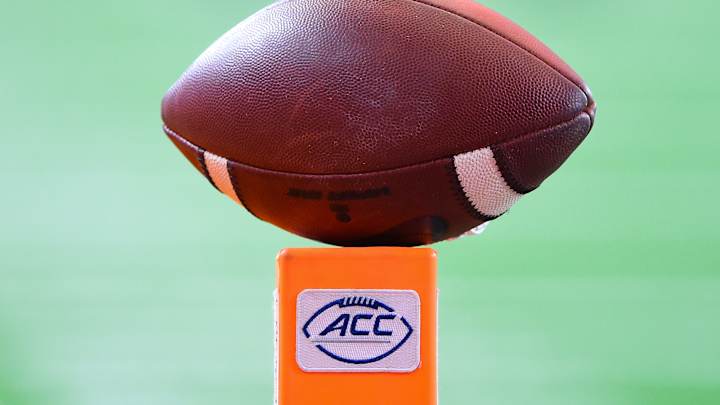A Jersey Guy: ACC season deflates quickly

They did everything they could to make it work.
They juggled the truncated and COVID-19 dominated regular season schedule to give their two best teams the best possible chance of advancing in the post season.
And it worked.
Both regular season champion Nore Dame and ACC championship game winner Clemson made the CFP Final Four, a milestone moment for a conference looking for some CFB respect.
And if everything had gone right on New Year's Day in the CFP semifinal games, it would have been an ACC block party in South Florida on January 11th in the rubber game of a three-part ND-Clemson series.
Ah, the best laid plans of mice and men and outgoing ACC commissioner John Swofford and his minions.
The problem was that Clemson and Notre Dame were actually forced to play OHIO State and Alabama.
Both came up short, way short, being outscored by a combined margin of 80-38.
Notre Dame's 31-14 loss to No. 1 Alabama was expected.
The Irish, who are now 0-6 in their last six New Year's Six bowl appearances were 20-point underdogs to the Tide and were never a factor.
Alabama scored touchdowns on its first two possessions of the game and never looked back in cruising into the CFP championship game.
Notre Dame coach Brian Kelly was visibly irritated when another Irish big game flop was mentioned.
"I really don't want to continue to go down that path,'' said Kelly after the game concluded an 11-2 ND season, the fourth consecutive double digit win season for the Irish. "We're going to keep getting here. I'm sorry if you don't like it or if the national media doesn't lke it. We're going to keep recruiting and we're going to put ourselves back in this position again.''
And unless things change dramatically, they will continue to come up short.
For Clemson, which HAS been a dominant team in New Year's Six bowl games over the past several years, with a pair of national championships, the 49-28 loss to the Buckeyes was a major surprise for a variety of reasons, especially to Clemson coach Dabo Swinney, who had voted Ohio State No. 11 in his final coaches ballot.
What Swinney and Clemson saw in the Sugar Bowl on Friday night was an Ohio State team which had been ranked No. 1 in the country in many pre-season polls and a quarterback in Justin Fields who was a Heisman front runner over Clemson's QB Trevor Lawrence.
All Fields did was shred the Clemson defense by throwing 6 TD passes during which OSU built a 35-14 halftime lead for an Ohio State team that had played only 6 games going into the semifinals, which raised issues about the Buckeyes' worthiness as a Final Four team.
"I just think everyone doubting us just pushed us a little more,'' said Fields.
What did happen on Friday night was that the ACC's dreams of glory were doused quickly and emphatically.
By the time the bowl season (except for the championship game) ended on Saturday night, the ACC was a winless 0-6 in bowl games.
Nor are there signs that the next few months—the ACC's standing as a basketball powered conference has not been debated—won't be just as bumpy.
As of Sunday, there wasn't an ACC team in the Top 15 in the polls, with Florida State leading the way at No. 18.
The highlight game thus far of the ACC season has been a Clemson-Florida State meeting in which the Tigers pulled out a 10-point victory.
The ACC's perennial basketball powers, Duke, North Carolina and Virginia, are MIA (or Inaction) because of COVID issues.
We might not see another ACC national championship banner raised until the end of the lacrosse season in the spring or early summer.
For ACC football nation, the winter of discontent could just be starting, haunted by the memory of a taste of a flat New Year's champagne.
